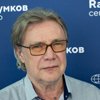Russia's full-scale war against Ukraine has significantly changed the picture of the world and will bring tectonic shifts in the perception of security, with corresponding changes in the mechanisms of its provision, response to crises of various origins and their settlement. It’s becoming increasingly clear (unfortunately, too late, and not for everyone) that the "normality" to which the Kremlin is trying to accustom the world has nothing to do with the norms of the international law and the real situation.
The Kremlin regime (in the broadest sense) has thrown off the mask and shown the real face of Putin — an international terrorist, a murderer, a rapist, a looter, a liar — personifying everything allowed by him to the Russian Armed Forces on the territory of Ukraine, and to those who determine and implement the Russian domestic and foreign policy. Is this the face some Western politicians hope to preserve?
In order to prevent the recurrence of the horrors of war and the breakdown of the system of international law, the international peace-loving community must implement reforms and strengthen the security system both globally and regionally. If, for some reason, the structures responsible for the work of security mechanisms are not ready or do not agree to changes, or delay them, the public must find the ways to remove those guilty and to push reforms — through elections, protest actions, criticism in mass media, etc.
The war put an end to the fairy tale about the fraternal Ukrainian and Russian peoples, about the possibility of their peaceful coexistence, exposed the hostile attitude of the Russian political "elite" and strongly zombified society to Ukraine (and the entire democratic community). It left a negative (sometimes destructive) imprint on Ukrainian-Russian economic and cultural ties, making Ukraine to feel endangered by its north-eastern neighbour for many years to come. This necessitates a fundamental change in views on the structure and organisation of Ukraine’s economic and security sectors, set to be seriously militarised against its will.
See the full Ukrainian text at https://razumkov.org.ua/images/pdf/20220830_sungurovsky.pdf




